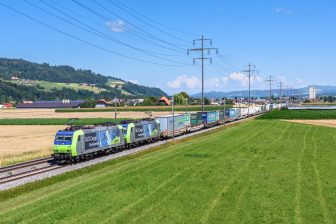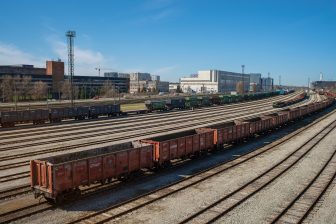
ERFA welcomes French railway reform
The European Rail Freight Association (ERFA) is positive about the ongoing discussions regarding far-reaching reforms of the French National Railways (SNCF). It believes that France is well on its way towards a policy supporting a modal shift to rail and healthy competition for the rail freight sector.
On February 15 a commission led by former Air France-KLM chairman Mr Jean-Cyril Spinetta presented to the French government a highly critical report on the future of rail transport. With regards to the rail freight sector, it pointed towards the continuing decline of traffic volumes and the mounting debt of Fret SNCF, the freight division of SNFC.
In response, French prime minister Edouard Philippe initiated a consultation regarding the reform of SNFC, with a first meeting held on February 19. He commented: “The situation is alarming or even untenable. (…) SNCF has to present before summer and after consultation, a strategic corporate project guaranteeing a better quality of service for all transport users and a more efficient management.”
Competitive railway
ERFA in particular draws attention to the Spinetta report’s recognition that rail competition is only beneficial if the road is not in a more favourable situation. In view of the absence of distance-based charging for heavy goods vehicles at a sufficient level, the report recommends that freight charges should be kept below the marginal cost, adjusted to the undercharging of other transport modes, as allowed today by European legislation.
“ERFA applauds this!” said the lobby organisation representing new entrants in the industry. It pleads for the writing off of SNCF’s debt by the state, which will allow the reduction of access charges and the rate of return needed to justify new investments. Based on the state’s 2017-2026 contract with infrastructure manager SNCF Network, operational costs will be increased, a situation highly unfavourable according to lobbyists.
Fret SNCF debt
In 2016, Fret SNCF faced a total debt of 4.3 billion Euros, despite a recapitalisation by the government in 2005. Net debt has been forecast to reach 5.1 billion Euros by 2020. The Spinetta report recommends another recapitalisation of the freight division by transferring most of its debt to SNCF Mobility, while Fret SNCF becomes a subsidiary company. Spinetta moreover suggested SNCF Network create a freight subsidiary.
Profitability is partly hampered by the cost and working conditions of SNCF staff, said the Court of Auditors in September last year. Average gross pay of Fret SNCF staff increased by 2.8 per cent annually between 2008 and 2014, compared with an average increase of 1.6 per cent across the broader transport sector. Meanwhile, staff absence increased from an average of 10.5 days in 2009 to 12.8 days in 2014.
Philippe emphasised the need for a new social contract with the railway staff members who must benefit from the same working conditions as all the French, ie those of the Labor Code. ERFA welcomes the intention to abolish the special status of SNCF employees for all new staff as it is detrimental to the competitiveness of the sector.
Freight paths
In anticipation of the reforms, ERFA has suggested a higher priority is given to freight in the allocation of train paths, in addition to greater transparency in this respect, including in situations of saturation, near saturation and incident.
The organisation said to be delighted that the Prime Minister had distanced himself from the report’s recommendation of closing small, uncrowded lines. “On the contrary, he recommends that SNCF aligns its costs with European standards, when “to drive by train in France costs 30 per cent more than elsewhere”.
Market share
Traffic volumes on the French railway network were on a downward trend for many years. Recently, volumes have stabilised at 32 billion tonne-kilometer a year. However, SNCF’s share of the overall freight market has fallen from 18 per cent in 2003 to 10 per cent in 2016. New entrants on the market now represent a 40 per cent market share.
“All freight operators that are profitable today – such as Europorte, SBBCI, BLSC, Lineas, CFL, Railtraxx, LTE, Hector Rail and GBRF- have restructured to achieve profitability and have set up a management dynamic oriented primarily towards customer satisfaction. This is proof that, if adequate measures are taken, there is a future for rail freight in France and everywhere in Europe”, pointed ERFA out.





